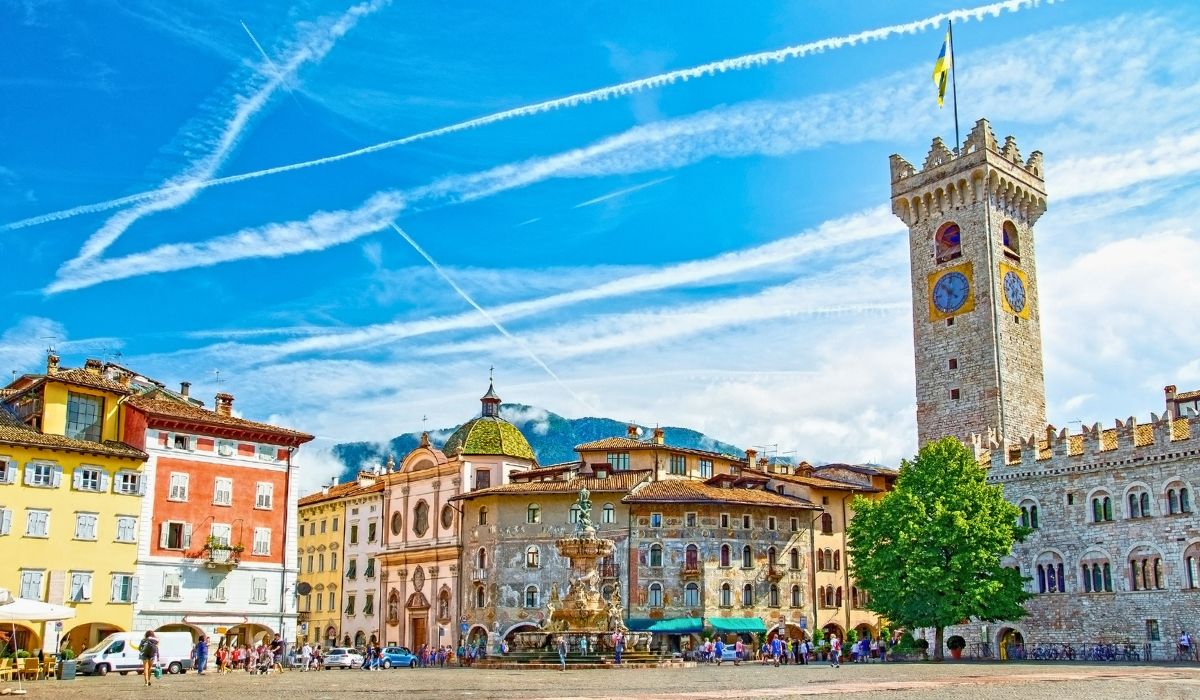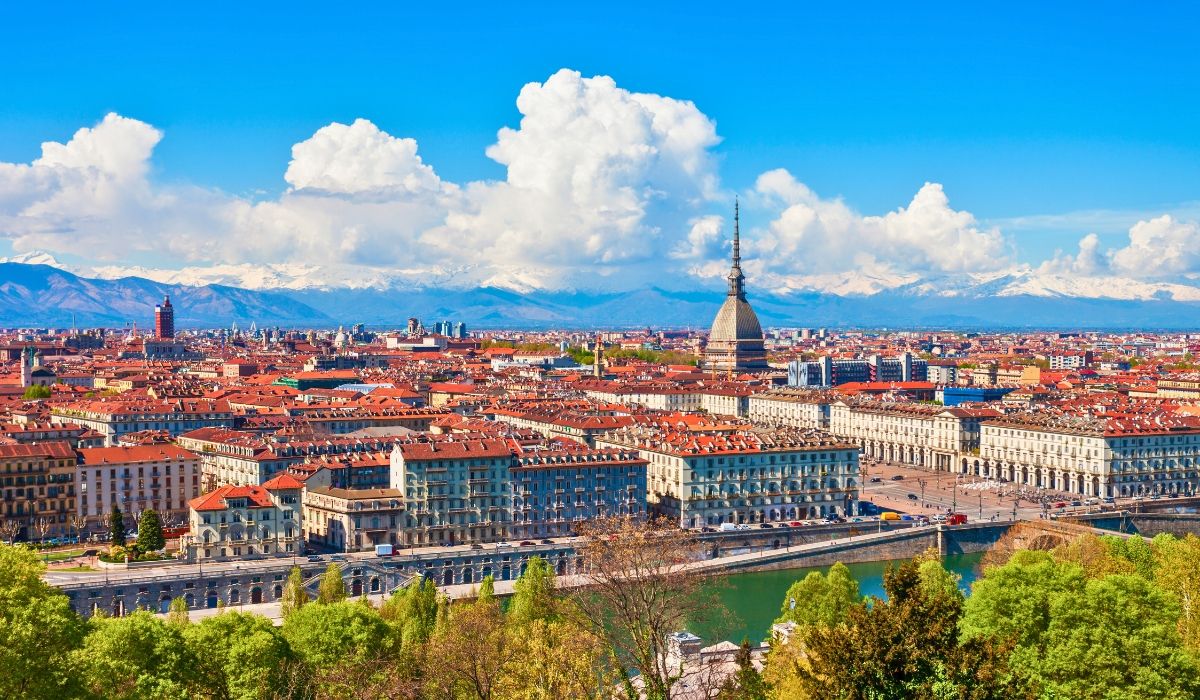Studying in Italy? A Guide for Canadian Students
From Rome to Florence, Canadian students can avoid bank delays and high charges when paying tuition in Italy. MTFX provides bank-beating CAD-EUR rates, transparent fees, and secure transfers, making tuition payments smooth and affordable.
Studying abroad in Italy offers Canadian students a perfect mix of academic excellence and cultural discovery. Renowned for its prestigious universities, such as the University of Bologna, Italy provides diverse programs that cater to various interests and career paths. If you’re looking for a university in Italy for international students, you’ll find options ranging from art and history to engineering and business.
This guide covers essential aspects of studying in Italy, including the application process, living costs, and cultural immersion. Whether you’re captivated by Florence’s art, Milan’s fashion scene, or Naples’s vibrant streets, studying in Italy promises academic growth and enriching experiences. Discover the perfect way to study in Europe as you create lifelong memories in one of the world’s most inspiring countries.
Why should Canadian students study in Italy?
Canadian students should consider studying in Italy for several compelling reasons:
Rich cultural experience
Studying abroad in Italy allows Canadian students to immerse themselves in a country celebrated for its rich history, breathtaking art, and iconic architecture. Italy's vibrant cultural heritage provides a unique and inspiring educational environment, from ancient Roman ruins to Renaissance masterpieces. Exploring these cultural treasures improves learning beyond the classroom and leaves students with unforgettable memories.
Renowned educational institutions
Italy has some of the best programs available at prestigious universities, delivering top-tier education in the humanities, arts, sciences, and engineering. For Canadian students, Italian universities offer innovative teaching methods, access to world-renowned professors, and globally recognized academic credentials. Studying at these institutions provides students with invaluable skills and experiences that will benefit their future careers.
Global networking opportunities
Studying abroad in Italy allows Canadian students to engage with a diverse community of international peers and professionals. This global network fosters intercultural communication skills and creates lasting connections. By attending Italy universities for international students, Canadian students can develop relationships that enhance both personal growth and career prospects in an increasingly interconnected world.
Language acquisition
Italy has some of the best programs available at prestigious universities, delivering top-tier education in the humanities, arts, sciences, and engineering. For Canadian students, Italian universities offer innovative teaching methods, access to world-renowned professors, and globally recognized academic credentials. Studying at these institutions provides students with invaluable skills and experiences that will benefit their future careers.

How much does it cost for Canadian students to study in Italy?
The cost of studying in Italy as a Canadian student can vary depending on factors such as the university, location, and program of study. Here's a breakdown of the main expenses to consider;
Tuition fees
The cost of studying in Italy for international students varies depending on the type of university and the specific program. Public universities typically have more affordable tuition fees compared to private institutions. Fees may differ for EU and non-EU citizens, with non-EU students often paying higher rates. Researching your chosen university in Italy for international students is essential to understand how to pay your tuition fee from Canada and plan your budget.
Living expenses
Living costs depend on the city or region. Major cities like Rome and Milan usually have higher expenses, while smaller towns may be more budget-friendly. Accommodation, food, transportation, and leisure activities significantly impact your budget. To manage expenses while studying abroad in Italy, consider shared housing, preparing meals at home, and using public transport.
Health insurance
Canadian students must have health insurance while studying in Italy. Some universities offer insurance options, but checking whether your Canadian plan covers international health needs is important. If it doesn't, you'll need to obtain additional coverage. Including health insurance in your overall study costs in Italy will help ensure you have smooth access to healthcare services during your stay.
Visa fees
Students planning to study in Italy for over 90 days need a student visa. Visa fees vary depending on the visa type and nationality. The application process requires proof of financial means and acceptance into a university in Italy for international students. It’s important to include these costs in your budget for a hassle-free application process.
Miscellaneous expenses
When planning to study in Italy, it's important to consider additional costs beyond tuition, such as textbooks, study materials, personal expenses, and travel. Preparing for unexpected expenses can help keep your overall study costs manageable. By budgeting carefully, you can ensure a financially secure and fulfilling study abroad experience.
How do Canadian students apply to a university in Italy?
Applying to a university in Italy for international students requires careful planning and organization. Canadian students need to research suitable programs, meet academic and language requirements, and prepare essential documents. Additionally, understanding the requirements to study in Italy, including the application process and visa procedures, is crucial for a smooth transition.
Research universities and programs
Start by researching universities and programs in Italy that match your academic and career goals. Evaluate factors such as program reputation, location, and language of instruction. Select institutions that provide a curriculum aligned with your aspirations and offer strong support for international students.
Check admission requirements
Review the admission criteria for your chosen university and program. Ensure you meet the academic requirements, such as prior qualifications and grades and language proficiency in Italian, if applicable. Understanding the specific requirements is crucial to preparing a successful application.
Prepare required documents
Gather all necessary documents, including academic transcripts, diplomas, language proficiency certificates, a CV, and letters of recommendation. If your documents are in a language other than Italian or English, have them officially translated. Properly preparing your application materials will streamline the admission process.
Submit online application
Complete the application online through the university's dedicated portal. Fill out the form accurately, attach the required documents, and adhere to the submission deadlines. A well-prepared application increases your chances of admission to a university in Italy for international students.
Pay application fees
Some universities in Italy may require an application fee as part of the admissions process. Be sure to check accepted payment methods and deadlines carefully. To save on costs, use a reliable and cost-effective service to send money from Canada to Italy. Always keep a record of your transaction to confirm payment and prevent delays in processing your application.
Apply for scholarships and financial aid
Explore scholarships and financial aid opportunities designed specifically for international students studying in Italy. These can significantly reduce expenses, making education in Italy more accessible. Many universities and organizations offer merit-based or need-based funding to help with tuition and living costs.
Track application status
Monitor your application through the university's portal. Respond promptly to any requests for additional documents or clarifications. Staying proactive and engaged throughout the process helps ensure your application remains on track.
Student visas and residence permits
Do Canadians need a visa for Italy? Yes, Canadian students planning to stay for more than 90 days must apply for an Italy student visa and a residence permit. Begin the process early by contacting the Italian consulate in Canada to ensure all requirements are met before departure.
Best places to study in Italy as a Canadian student
Italy is home to numerous prestigious universities renowned for their academic excellence. Here are a few of the top-rated universities in the country:
Rome
Rome, Italy's capital, is a top destination for students seeking a vibrant, historically rich environment. With institutions like Sapienza University of Rome, the city offers exceptional opportunities in humanities, arts, history, and architecture. As a university in Italy for international students, Rome blends academic excellence with iconic cultural experiences.
Florence
Known as the birthplace of the Renaissance, Florence is a paradise for students passionate about art, design, and cultural studies. Renowned institutions like the University of Florence and the Florence Institute of Design offer some of the best programs in Italy, focusing on fine arts, fashion, history, and architecture. Studying here immerses students in Florence's unparalleled artistic legacy.
Milan
Milan, Italy’s financial and fashion capital, provides a cosmopolitan and dynamic study environment. Institutions like Politecnico di Milano and Bocconi University excel in engineering, design, business, and economics. As a hub for innovation, Milan offers excellent opportunities at Italy universities for international students through internships, networking, and exposure to global industries.
Bologna
Famous for being the world's oldest university city, Bologna hosts the University of Bologna, founded in 1088. Known for its law, humanities, and social sciences programs, it remains a beacon of traditional academia. Bologna's lively atmosphere, historic charm, and academic prestige create an ideal setting for intellectual growth for students studying abroad.
Naples
Located in southern Italy, Naples offers students a vibrant, culturally rich experience. The University of Naples Federico II, one of the oldest institutions, is known for its research-driven approach and diverse programs in humanities and sciences. This city is perfect for international students seeking the unique blend of tradition and modernity offered by Italian universities.
Top educational institutions in Italy
Italy is home to some of the world’s most prestigious universities, offering a wide range of programs that attract students from all over the globe. Here are some of the top-ranking universities in the country, ideal for studying abroad in Italy:
University of Padua
Founded in 1222, the University of Padua is one of Europe’s oldest and most prestigious institutions. It offers a diverse range of programs, including medicine, law, engineering, and social sciences. Known for its cutting-edge research and academic excellence, this university provides a historic yet innovative environment for students seeking high-quality education and a culturally enriching experience.
University of Bologna
Established in 1088, the University of Bologna is the oldest university in the world and a leader in humanities, law, and social sciences. With its strong academic reputation, it attracts students from around the globe. Offering some of Italy's best study abroad programs, it combines academic excellence with a dynamic and historic campus experience.
Sapienza University Rome
Sapienza University in Rome is one of Europe's largest and most reputable institutions. It offers a wide variety of programs in science, engineering, arts, and humanities, supported by world-class faculty and research facilities. Students benefit from Rome's rich historical and cultural backdrop, creating an inspiring environment for learning and exploration.
University of Milan
The University of Milan is a top destination for students pursuing business, economics, medicine, and sciences. Located in Italy’s vibrant financial and fashion capital, it provides an exceptional academic experience. For those considering studying abroad in Italy, it offers an excellent mix of high-quality education and opportunities to connect with global industries and networks.
University of Naples Federico II
Founded in 1224, the University of Naples Federico II is one of the oldest universities in the world. Renowned for its innovative research and academic programs in humanities, sciences, and technology, it offers a diverse and inclusive learning environment. Students benefit from the vibrant cultural heritage and dynamic atmosphere of southern Italy.
University of Turin
The University of Turin is a prestigious institution known for its strong focus on social sciences, humanities, and life sciences. It also offers cutting-edge interdisciplinary programs and modern facilities. As a distinguished university in Italy for international students, it provides a supportive academic environment and access to rich cultural experiences within a historic city.
University of Pisa
The University of Pisa is an internationally recognized institution celebrated for its excellence in engineering, mathematics, and natural sciences. It boasts a historic legacy and a forward-thinking approach to education. As one of the top Italy universities for international students, it attracts learners from around the world seeking innovative programs and global opportunities.
University of Florence
Located in the artistic heart of Tuscany, the University of Florence is ideal for students interested in arts, design, history, and architecture. Its exceptional academic programs and world-renowned faculty make it a leader in creative studies. Students enjoy a unique educational experience while immersing themselves in Florence’s rich cultural and artistic legacy.
University of Trento
The University of Trento is highly regarded for its excellence in innovation and research, particularly in engineering, computer science, and social sciences. It provides a modern, research-driven academic culture focusing on interdisciplinary studies. Known for its international outlook, it attracts students seeking cutting-edge education in a collaborative and inspiring environment.
University of Milano-Bicocca
The University of Milano-Bicocca is a forward-thinking institution excelling in economics, science, and technology. Located in Milan, it offers interdisciplinary programs designed to meet the demands of global industries. With its modern campus, innovative teaching methods, and connections to Milan’s thriving business community, it’s an excellent choice for international students pursuing diverse academic interests.
Why does the CAD to EUR exchange rate matter for studying abroad?
The CAD to EUR exchange rate plays a crucial role in determining the financial feasibility of studying abroad for Canadian students. Tuition fees at European universities, often charged in euros, are directly affected by the exchange rate. A favourable rate means students can pay less in Canadian dollars, while an unfavourable rate increases the financial burden. Similarly, living expenses, including accommodation, food, and transportation, can fluctuate with exchange rate changes, making daily necessities more or less expensive.
Understanding the exchange rate also helps students plan their finances effectively. By monitoring the CAD to EUR exchange rate, students can estimate costs such as tuition, living expenses, and additional expenditures like travel or leisure activities. For those relying on scholarships or funding in Canadian dollars, a strong CAD ensures that their financial aid stretches further when converted to euros, whereas a weaker CAD could reduce its value.
Since studying abroad involves long-term financial commitments, managing currency fluctuations is critical. Tools like rate lock-in or working with currency specialists can help students lock in favourable rates and minimize the impact of market volatility. Ultimately, being mindful of the CAD to EUR exchange rate allows Canadian students to make informed financial decisions and stay within their budget while pursuing education in Europe.

Paying for your overseas education with the best exchange rates
If you’re studying abroad in Italy, managing your finances efficiently is essential. Whether it’s paying tuition fees at a university in Italy for international students or covering living expenses, finding cost-effective ways to transfer money internationally can save you a significant amount. Traditional banks often charge higher fees and offer less competitive exchange rates, making them an expensive option.
Registering with a specialized platform like MTFX ensures you benefit from the best rates when converting CAD to EUR, just ideal for international students. With 24/7 accessibility, automated payments, and secure transfers, MTFX simplifies the financial aspects of studying abroad in Italy, helping you focus on your education and experience.
MTFX: Competitive exchange rates for your currency exchange needs
If you’re studying abroad in Italy, managing currency exchange efficiently is a vital part of your financial planning. Since the Euro (€) is the only accepted currency in Italy, having a reliable partner like MTFX ensures a seamless and cost-effective exchange experience. MTFX offers competitive exchange rates, lower fees, and transparent pricing, making it an ideal choice for students transferring money to cover tuition fees or living expenses.
Whether you're applying for a student visa in Italy from Canada or paying tuition fees at a university in Italy for international students, MTFX provides secure, quick, and easy international money transfers.
Open an account today to streamline your financial transactions and focus on your academic journey in Italy.
FAQs
1. How do I pay my Italian university tuition from Canada?
You can convert CAD to EUR and send tuition payments directly to Italian institutions using MTFX—fast, secure, and student-friendly.
2. Can I view the current CAD to EUR exchange rate before transferring?
Use MTFX’s real-time rate calculator to check the rate before confirming your transfer.
3. Is it possible to lock in an exchange rate before paying tuition?
Absolutely. Lock in a rate in advance that's favourable to you. It's ideal if your tuition is due in a few weeks or months.
4. How long does a CAD to EUR tuition payment to Italy take?
MTFX typically completes transfers within 1–2 business days. Timing depends on the destination bank in Italy.
5. Can my parents in Canada pay my tuition directly to my Italian university?
MTFX supports third-party transfers so a parent or sponsor can send payment securely on your behalf.
6. Can I split tuition into scheduled payments each semester?
Use MTFX’s automated transfer feature to schedule tuition payments aligned with your academic calendar.
7. What makes MTFX better than using a traditional bank?
You get competitive exchange rates, transparent pricing, and direct access to education payment tools—no long queues or hidden charges.
8. Is MTFX secure and regulated for tuition payments?
MTFX is a licensed Canadian provider, trusted by thousands of students and institutions for global education transfers.
9. Can I track my tuition payment to my Italian university?
MTFX provides real-time tracking, status notifications, and instant confirmations with every payment.
10. Can I pay for an entire academic year in one lump sum?
MTFX supports large tuition transfers and allows you to lock in a rate if you want price certainty for the full year.
Open an account today to streamline your financial transactions and focus on your academic journey in Italy.
Related Blogs
Stay ahead with fresh perspectives, expert tips, and inspiring stories.

Keep updated
Make informed decisions
Access tools to help you track, manage, and simplify your global payments.
Currency market updates
Track key currency movements and plan your transfers with confidence.
Create an account today
Start today, and let us take the hassle out of overseas transfers.




